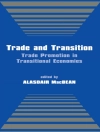This edited collection considers how conditional welfare policies and services are implemented and experienced by a diverse range of welfare service users across a range of UK policy domains including social security, homelessness, migration and criminal justice.
The book showcases the insights and findings of a series of distinct, independent studies undertaken by early career researchers associated with the ESRC funded Welfare Conditionality project. Each chapter presents a new empirical analysis of data generated in fieldwork conducted with practitioners charged with interpreting and delivering policy, and welfare service users who are at the sharp end of welfare services shaped by behavioural conditionality.
Зміст
Editor’s introduction ~ Peter Dwyer
Supporting people? Universal Credit, conditionality and the recalibration of vulnerability ~ Helen Stinson
Punishment, powerlessness and bounded agency: exploring the role of welfare conditionality with ‘at risk’ women attempting to live ‘a good life’ ~ Larissa Povey
Resisting welfare conditionality: constraint, choice and dissent among homeless migrants ~ Regina Serpa
No strings attached? An exploration of employment support services offered by third sector homelessness organisations ~ Katy Jones
Exploring the impact of welfare conditionality on Roma migrants in the UK ~ Liviu Dinu and Lisa Scullion
Exploring the behavioural outcomes of family-based intensive interventions ~ Emily Ball
Editor’s afterword ~ Peter Dwyer
Про автора
Peter Dwyer is Emeritus Professor of Social Policy at the University of York. His research and teaching focuses on social citizenship. He led the large ESRC funded Welfare Conditionality: Sanctions Support and Behaviour Change (2013-2019) project.












